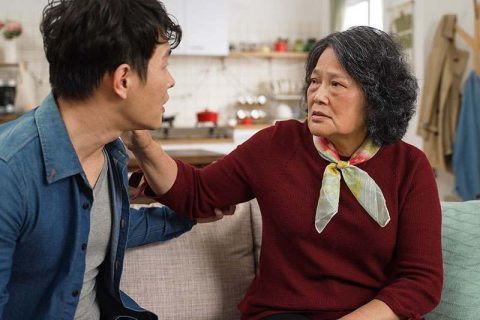May 15, 2023 by

You’ve been helping Mom since she was diagnosed with dementia. You have been working through a number of the challenging symptoms. Yet one day, she looks at you and calls you by a different name – that of her friend or cousin or younger brother. Do you correct her, reminding her that you are her son? Should you let it slide, pretending you didn’t notice the mistake? Or, should you just roll with it, accepting the new identity she has given you?
The loss of recognition is a difficult pill to swallow when caring for a senior with dementia. It is hard to look into a loved one’s eyes and receive a blank stare in return, or even to be called by a different name. It is important to set aside your own feelings temporarily, however, as you respond to the person. (We will get back to your emotions in a minute!)
How Should I Respond to a Senior with Dementia’s Recognition Confusion?
Start by remembering that your tone and attitude in handling this does not go unnoticed. If you show dismay at the memory lapse of a senior with dementia, they will feel alarmed as well, though they will not specifically understand why. Keep a cheerful, calm countenance throughout your interactions with someone with dementia.
From there, remind the senior with dementia that you know them. Use their name in your conversations, according to their sense of reality. If they believe you’re a husband or brother, for instance, call them by their first name instead of “Mom.” Try speaking about past, familiar stories. Oftentimes, long-term memory stays intact longer than short-term memory. For this reason, the older adult should be able to engage in conversations about their childhood and young adulthood, even though present-day memories have faded.
Lastly, do not forget to carve out time to look after yourself and work through the grief that will surely come from caring for a senior with dementia. Though the person is still alive, the memories and abilities they have lost cause grief to people who love them. Consult with a therapist for assistance, and take plenty of time for hobbies you enjoy.
It is devastating to watch an aging loved one lose their memory and recognition. It really isn’t possible to “jog” memories lost to dementia by cajoling, prompting, or other means. The older adult is not able to retrieve these lost memories in the same manner somebody who has lost their sight is no longer able to see.
The most effective strategy is to focus on what the senior with dementia has retained and to celebrate that as much as possible. With At Home Independent Living, our caregivers are experienced and trained in creative and positive dementia care techniques. We’re always available to provide you with additional resources and tips to assist you and someone you love. Email or call us any time at (315) 579-HOME (4663) to learn more about our in-home Alzheimer’s services and how we are available to help you throughout your caregiving journey.
